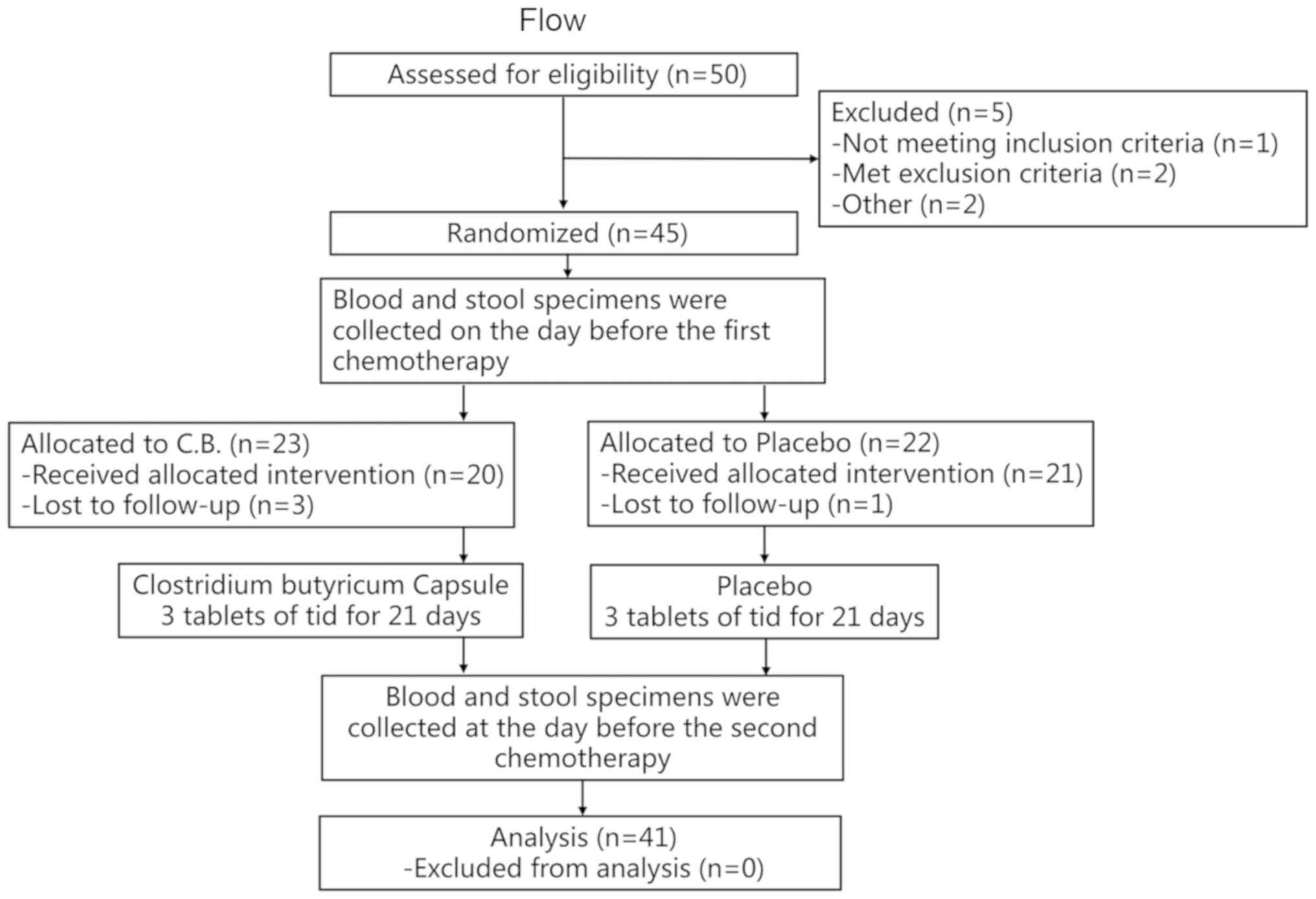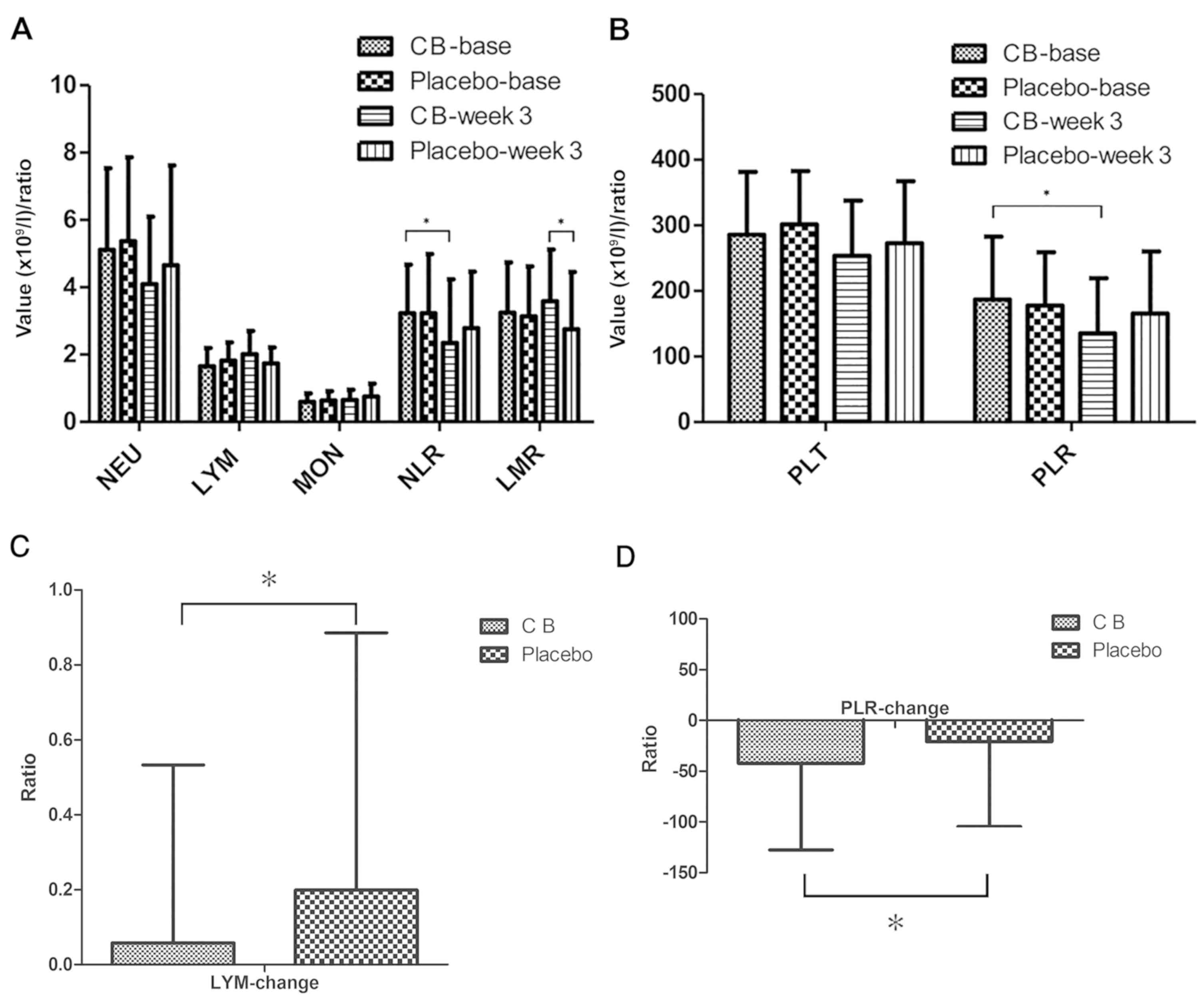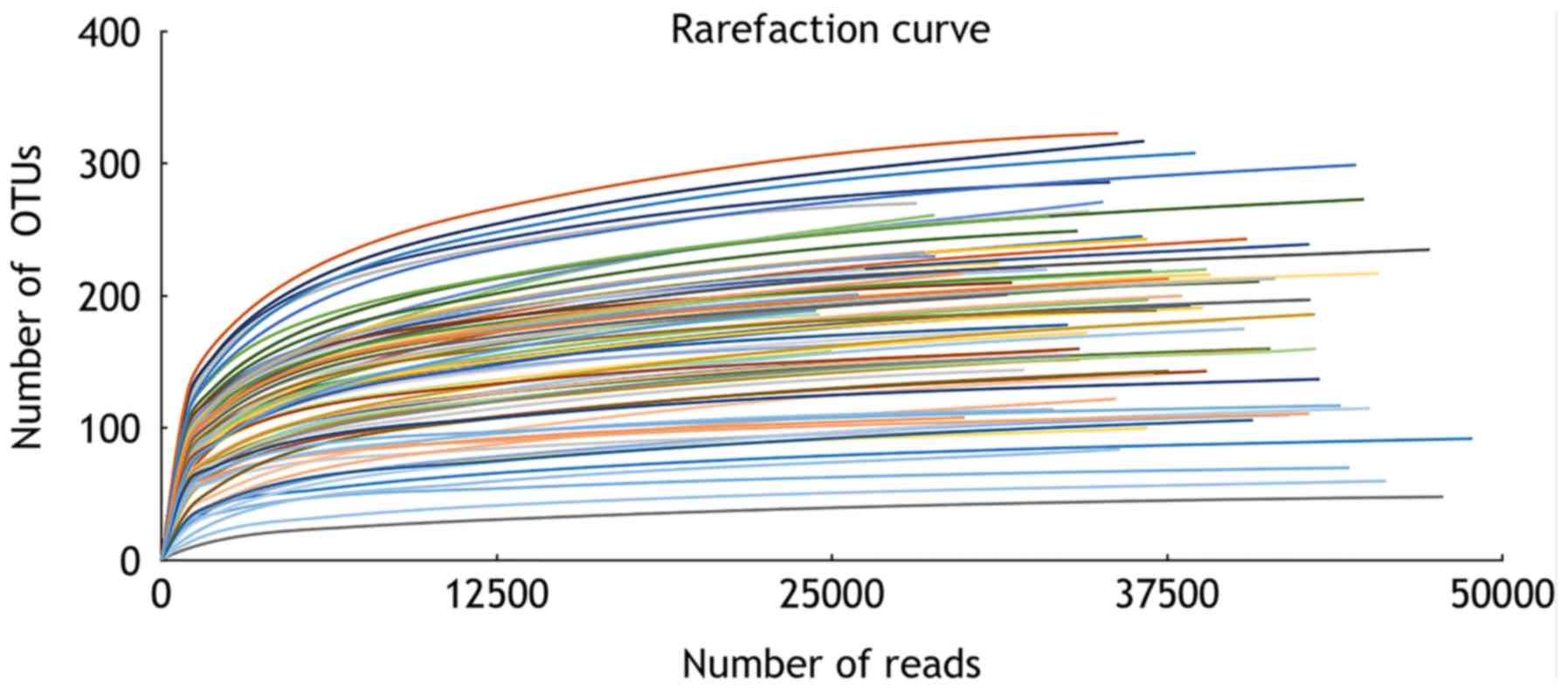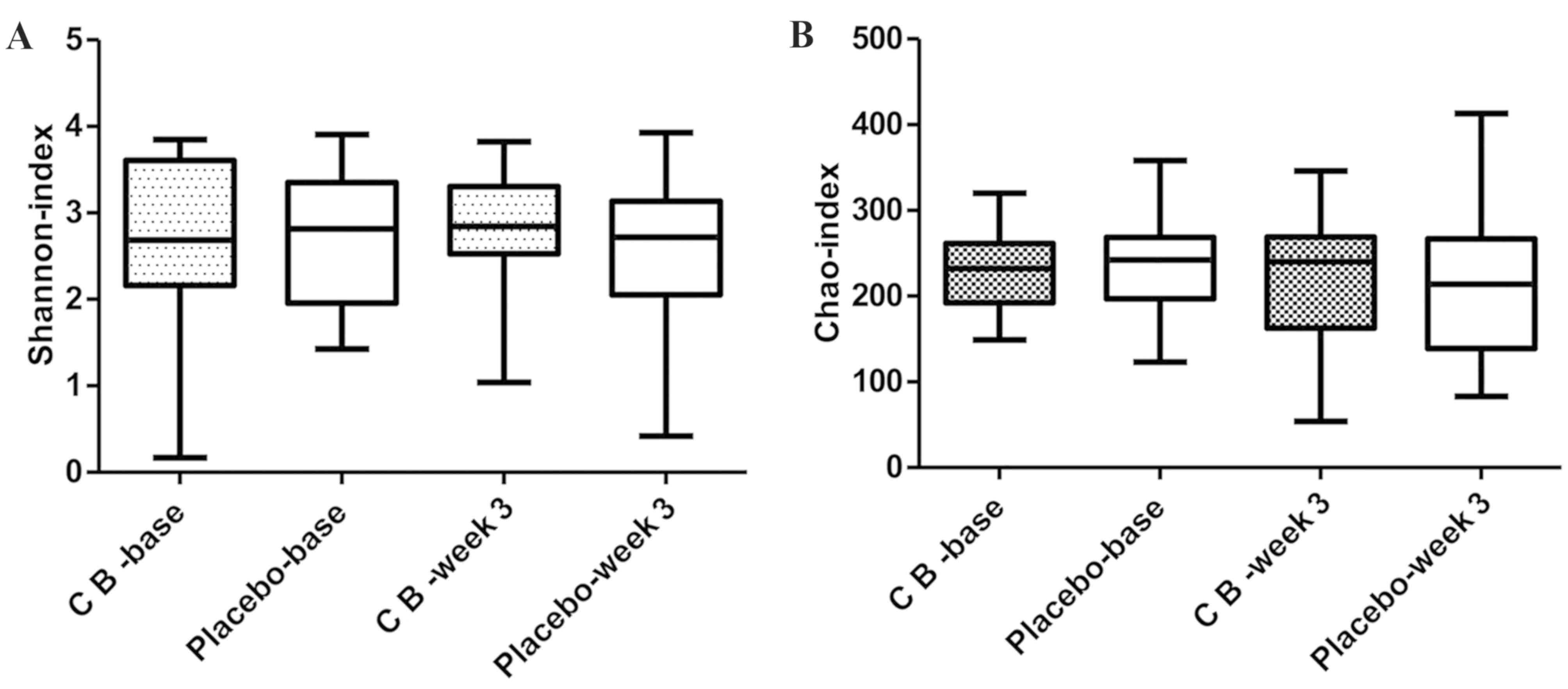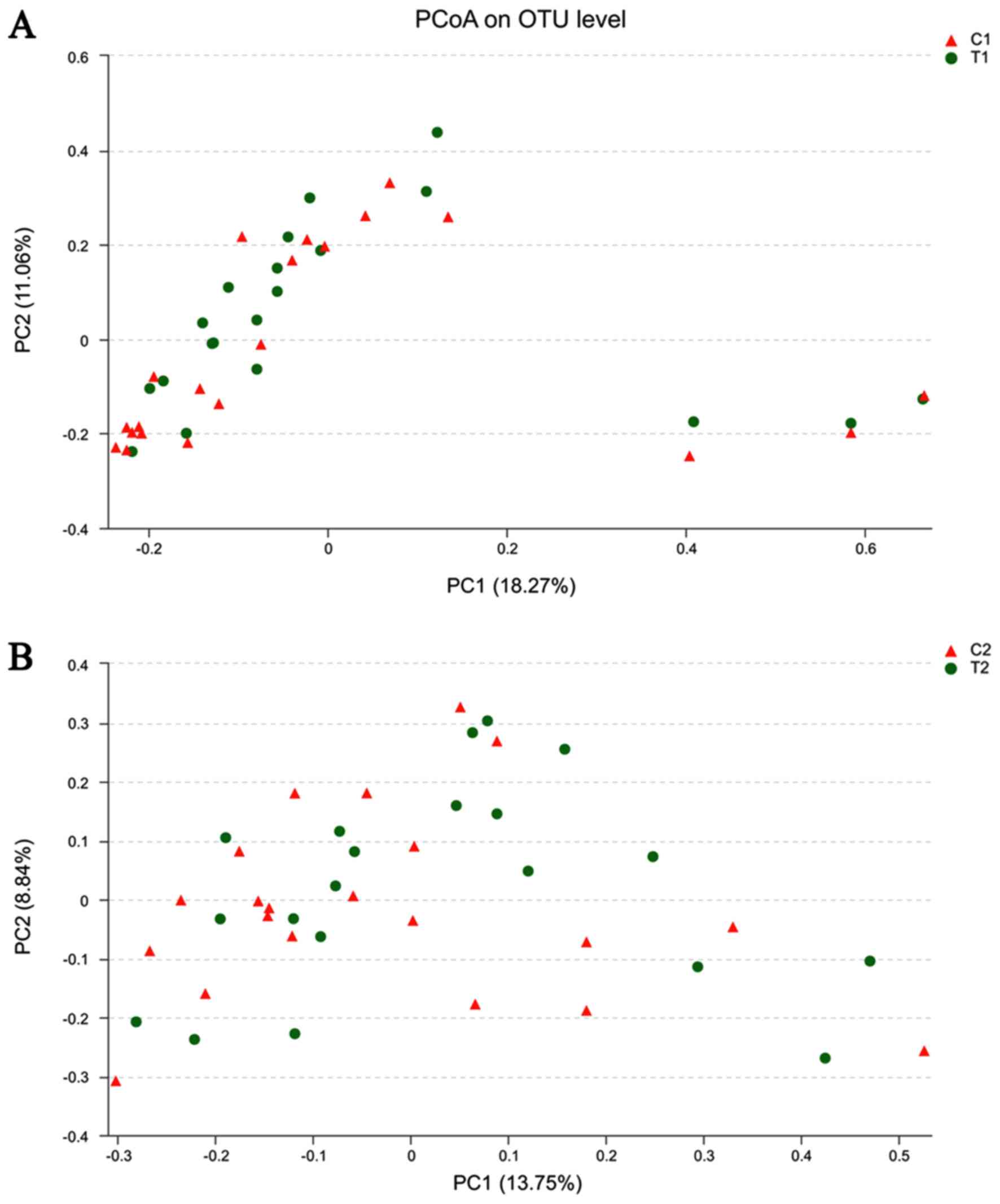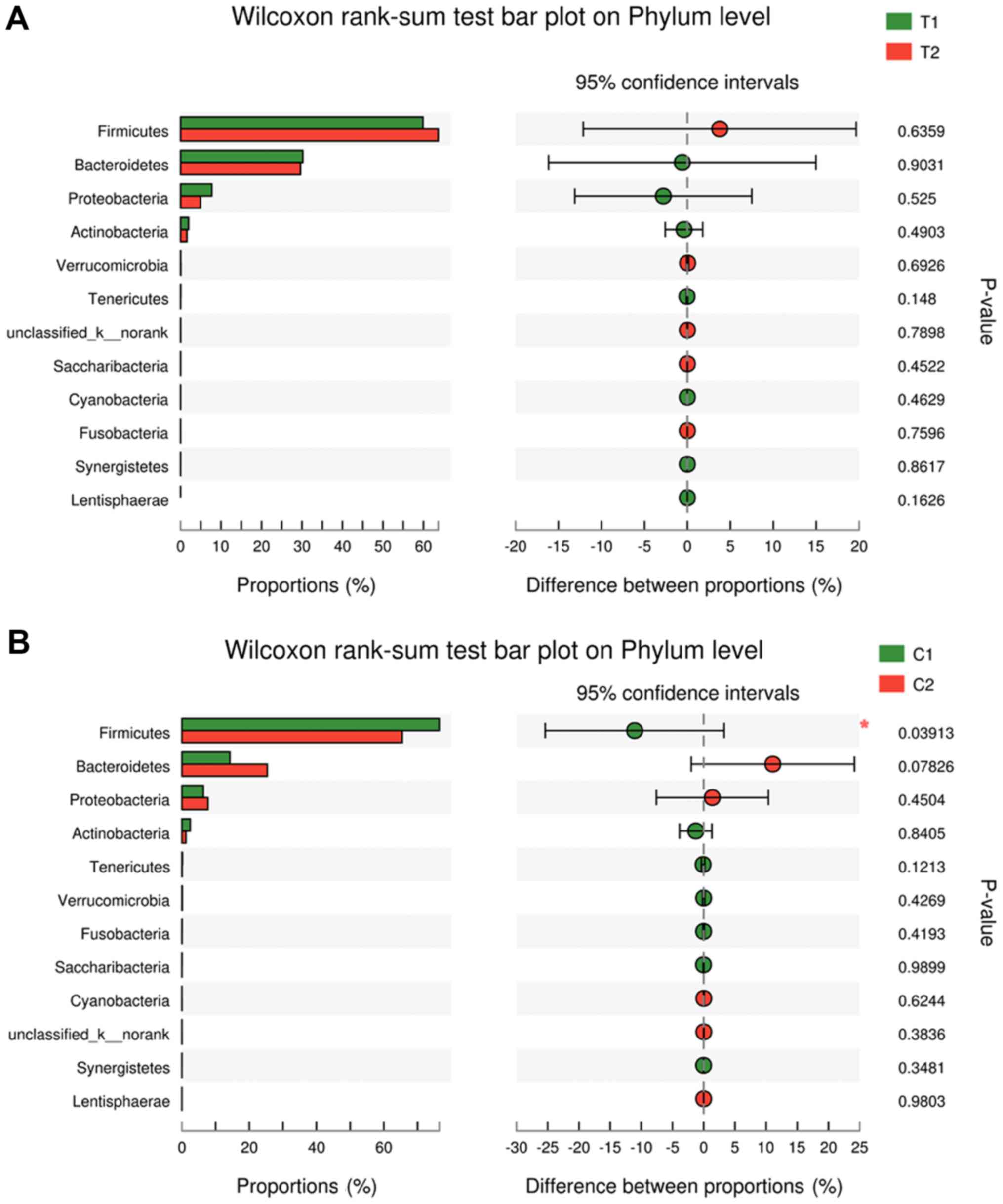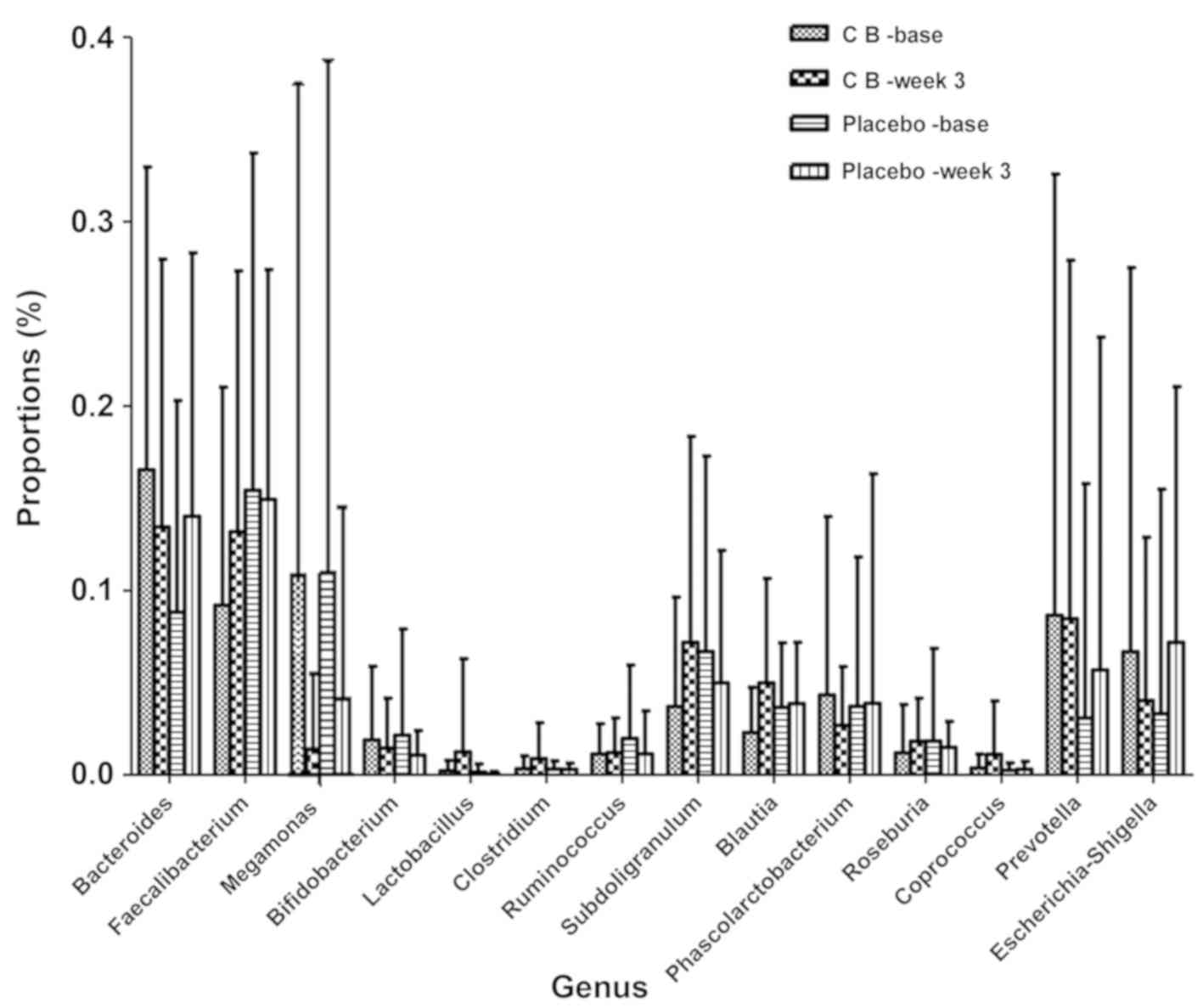|
1
|
Chen W, Zheng R, Baade PD, Zhang S, Zeng
H, Bray F, Jemal A, Yu XQ and He J: Cancer statistics in China,
2015. CA Cancer J Clin. 66:115–132. 2016. View Article : Google Scholar : PubMed/NCBI
|
|
2
|
Hirsch FR, Scagliotti GV, Mulshine JL,
Kwon R, Curran WJ Jr, Wu YL and Paz-Ares L: Lung cancer: Current
therapies and new targeted treatments. Lancet. 389:299–311. 2017.
View Article : Google Scholar : PubMed/NCBI
|
|
3
|
Howington JA, Blum MG, Chang AC, Balekian
AA and Murthy SC: Treatment of stage I and II non-small cell lung
cancer: Diagnosis and management of lung cancer, 3rd ed: American
College of Chest Physicians evidence-based clinical practice
guidelines. Chest. 143 (5 Suppl):e278S–e313S. 2013. View Article : Google Scholar : PubMed/NCBI
|
|
4
|
Johnson DH, Schiller JH and Bunn PA Jr:
Recent clinical advances in lung cancer management. J Clin Oncol.
32:973–982. 2014. View Article : Google Scholar : PubMed/NCBI
|
|
5
|
Wakelee H, Kelly K and Edelman MJ: 50
Years of progress in the systemic therapy of non-small cell lung
cancer. Am Soc Clin Oncol Educ Book. 2014:177–189. 2014. View Article : Google Scholar
|
|
6
|
Bradbury P, Sivajohanathan D, Chan A,
Kulkarni S, Ung Y and Ellis PM: Postoperative adjuvant systemic
therapy in completely resected non-small-cell lung cancer: A
systematic review. Clin Lung Cancer. 18:259–273.e8. 2017.
View Article : Google Scholar : PubMed/NCBI
|
|
7
|
Andreyev J, Ross P, Donnellan C, Lennan E,
Leonard P, Waters C, Wedlake L, Bridgewater J, Glynne-Jones R,
Allum W, et al: Guidance on the management of diarrhoea during
cancer chemotherapy. Lancet Oncol. 15:e447–e460. 2014. View Article : Google Scholar : PubMed/NCBI
|
|
8
|
Marx W, Kiss N, McCarthy AL, McKavanagh D
and Isenring L: Chemotherapy-induced nausea and vomiting: A
narrative review to inform dietetics practice. J Acad Nutr Diet.
116:819–827. 2016. View Article : Google Scholar : PubMed/NCBI
|
|
9
|
Tong H, Isenring E and Yates P: The
prevalence of nutrition impact symptoms and their relationship to
quality of life and clinical outcomes in medical oncology patients.
Support Care Cancer. 17:83–90. 2009. View Article : Google Scholar : PubMed/NCBI
|
|
10
|
Tohyama N, Tanaka S, Onda K, Sugiyama K
and Hirano T: Influence of anticancer agents on cell survival,
proliferation, and CD4+CD25+Foxp3+ regulatory T cell-frequency in
human peripheral-blood mononuclear cells activated by T
cell-mitogen. Int Immunopharmacol. 15:160–166. 2013. View Article : Google Scholar : PubMed/NCBI
|
|
11
|
Verma R, Foster RE, Horgan K, Mounsey K,
Nixon H, Smalle N, Hughes TA and Carter CR: Lymphocyte depletion
and repopulation after chemotherapy for primary breast cancer.
Breast Cancer Res. 18:102016. View Article : Google Scholar : PubMed/NCBI
|
|
12
|
Touchefeu Y, Montassier E, Nieman K,
Gastinne T, Potel G, Bruley des Varannes S, Le Vacon F and de La
Cochetière MF: Systematic review: The role of the gut microbiota in
chemotherapy- or radiation-induced gastrointestinal
mucositis-current evidence and potential clinical applications.
Aliment Pharmacol Ther. 40:409–421. 2014.PubMed/NCBI
|
|
13
|
Reid G: Food and Agricultural Organization
of the United Nation and the WHO: The importance of guidelines in
the development and application of probiotics. Curr Pharm Des.
11:11–16. 2005. View Article : Google Scholar : PubMed/NCBI
|
|
14
|
Jonkers D, Penders J, Masclee A and Pierik
M: Probiotics in the management of inflammatory bowel disease: A
systematic review of intervention studies in adult patients. Drugs.
72:803–823. 2012. View Article : Google Scholar : PubMed/NCBI
|
|
15
|
Kanai T, Mikami Y and Hayashi A: A
breakthrough in probiotics: Clostridium butyricum regulates gut
homeostasis and anti-inflammatory response in inflammatory bowel
disease. J Gastroenterol. 50:928–939. 2015. View Article : Google Scholar : PubMed/NCBI
|
|
16
|
Seki H, Shiohara M, Matsumura T, Miyagawa
N, Tanaka M, Komiyama A and Kurata S: Prevention of
antibiotic-associated diarrhea in children by Clostridium butyricum
MIYAIRI. Pediatr Int. 45:86–90. 2003. View Article : Google Scholar : PubMed/NCBI
|
|
17
|
Yasueda A, Mizushima T, Nezu R, Sumi R,
Tanaka M, Nishimura J, Kai Y, Hirota M, Osawa H, Nakajima K, et al:
The effect of Clostridium butyricum MIYAIRI on the prevention of
pouchitis and alteration of the microbiota profile in patients with
ulcerative colitis. Surg Today. 46:939–949. 2016. View Article : Google Scholar : PubMed/NCBI
|
|
18
|
Gibson RJ, Keefe DM, Lalla RV, Bateman E,
Blijlevens N, Fijlstra M, King EE, Stringer AM, van der Velden WJ,
Yazbeck R, et al: Systematic review of agents for the management of
gastrointestinal mucositis in cancer patients. Support Care Cancer.
21:313–326. 2013. View Article : Google Scholar : PubMed/NCBI
|
|
19
|
Mego M, Holec V, Drgona L, Hainova K,
Ciernikova S and Zajac V: Probiotic bacteria in cancer patients
undergoing chemotherapy and radiation therapy. Complement Ther Med.
21:712–723. 2013. View Article : Google Scholar : PubMed/NCBI
|
|
20
|
Wood DE, Kazerooni E, Baum SL, Dransfield
MT, Eapen GA, Ettinger DS, Hou L, Jackman DM, Klippenstein D, Kumar
R, et al: Lung cancer screening, version 1.2015: Featured updates
to the NCCN guidelines. J Natl Compr Canc Netw. 13:23–34; quiz 34.
2015. View Article : Google Scholar : PubMed/NCBI
|
|
21
|
Chen AP, Setser A, Anadkat MJ, Cotliar J,
Olsen EA, Garden BC and Lacouture ME: Grading dermatologic adverse
events of cancer treatments: The common terminology criteria for
adverse events version 4.0. J Am Acad Dermatol. 67:1025–1039. 2012.
View Article : Google Scholar : PubMed/NCBI
|
|
22
|
Hills LP and Tiffany TO: Comparison of
turbidimetric and light-scattering measurements of immunoglobulins
by use of a centrifugal analyzer with absorbance and
fluorescence/light-scattering optics. Clin Chem. 26:1459–1466.
1980.PubMed/NCBI
|
|
23
|
Quast C, Pruesse E, Yilmaz P, Gerken J,
Schweer T, Yarza P, Peplies J and Glöckner FO: The SILVA ribosomal
RNA gene database project: Improved data processing and web-based
tools. Nucleic Acids Res. 41((Database Issue)): D590–D596.
2013.PubMed/NCBI
|
|
24
|
Kong Q, He GQ, Jia JL, Zhu QL and Ruan H:
Oral administration of Clostridium butyricum for modulating
gastrointestinal microflora in mice. Curr Microbiol. 62:512–517.
2011. View Article : Google Scholar : PubMed/NCBI
|
|
25
|
Yeh KY, Wang HM, Chang JW, Huang JS, Lai
CH, Lan YJ, Wu TH, Chang PH, Wang H, Wu CJ, et al: Omega-3 fatty
acid-, micronutrient-, and probiotic-enriched nutrition helps body
weight stabilization in head and neck cancer cachexia. Oral Surg
Oral Med Oral Pathol Oral Radiol. 116:41–48. 2013. View Article : Google Scholar : PubMed/NCBI
|
|
26
|
Lee JY, Chu SH, Jeon JY, Lee MK, Park JH,
Lee DC, Lee JW and Kim NK: Effects of 12 weeks of probiotic
supplementation on quality of life in colorectal cancer survivors:
A double-blind, randomized, placebo-controlled trial. Dig Liver
Dis. 46:1126–1132. 2014. View Article : Google Scholar : PubMed/NCBI
|
|
27
|
Sadahiro S, Suzuki T, Tanaka A, Okada K,
Kamata H, Ozaki T and Koga Y: Comparison between oral antibiotics
and probiotics as bowel preparation for elective colon cancer
surgery to prevent infection: Prospective randomized trial.
Surgery. 155:493–503. 2014. View Article : Google Scholar : PubMed/NCBI
|
|
28
|
Mego M, Chovanec J, Vochyanova-Andrezalova
I, Konkolovsky P, Mikulova M, Reckova M, Miskovska V, Bystricky B,
Beniak J, Medvecova L, et al: Prevention of irinotecan induced
diarrhea by probiotics: A randomized double blind, placebo
controlled pilot study. Complement Ther Med. 23:356–362. 2015.
View Article : Google Scholar : PubMed/NCBI
|
|
29
|
Zhang HL, Yu LX, Yang W, Tang L, Lin Y, Wu
H, Zhai B, Tan YX, Shan L, Liu Q, et al: Profound impact of gut
homeostasis on chemically-induced pro-tumorigenic inflammation and
hepatocarcinogenesis in rats. J Hepatol. 57:803–812. 2012.
View Article : Google Scholar : PubMed/NCBI
|
|
30
|
Zheng J, Gänzle MG, Lin XB, Ruan L and Sun
M: Diversity and dynamics of bacteriocins from human microbiome.
Environ Microbiol. 17:2133–2143. 2015. View Article : Google Scholar : PubMed/NCBI
|
|
31
|
Fijlstra M, Ferdous M, Koning AM, Rings
EH, Harmsen HJ and Tissing WJ: Substantial decreases in the number
and diversity of microbiota during chemotherapy-induced
gastrointestinal mucositis in a rat model. Support Care Cancer.
23:1513–1522. 2015. View Article : Google Scholar : PubMed/NCBI
|
|
32
|
Xu X and Zhang X: Effects of
cyclophosphamide on immune system and gut microbiota in mice.
Microbiol Res. 171:97–106. 2015. View Article : Google Scholar : PubMed/NCBI
|
|
33
|
Montassier E, Batard E, Massart S,
Gastinne T, Carton T, Caillon J, Le Fresne S, Caroff N, Hardouin
JB, Moreau P, et al: 16S rRNA gene pyrosequencing reveals shift in
patient faecal microbiota during high-dose chemotherapy as
conditioning regimen for bone marrow transplantation. Microb Ecol.
67:690–699. 2014. View Article : Google Scholar : PubMed/NCBI
|
|
34
|
Canani RB, Costanzo MD, Leone L, Pedata M,
Meli R and Calignano A: Potential beneficial effects of butyrate in
intestinal and extraintestinal diseases. World J Gastroenterol.
17:1519–1528. 2011. View Article : Google Scholar : PubMed/NCBI
|
|
35
|
Wang T, Cai G, Qiu Y, Fei N, Zhang M, Pang
X, Jia W, Cai S and Zhao L: Structural segregation of gut
microbiota between colorectal cancer patients and healthy
volunteers. ISME J. 6:320–329. 2012. View Article : Google Scholar : PubMed/NCBI
|
|
36
|
Dvorak HF: Tumors: Wounds that do not
heal. Similarities between tumor stroma generation and wound
healing. N Engl J Med. 315:1650–1659. 1986. View Article : Google Scholar : PubMed/NCBI
|
|
37
|
DeNardo DG, Andreu P and Coussens LM:
Interactions between lymphocytes and myeloid cells regulate
pro-versus anti-tumor immunity. Cancer Metastasis Rev. 29:309–316.
2010. View Article : Google Scholar : PubMed/NCBI
|
|
38
|
Donskov F: Immunomonitoring and prognostic
relevance of neutrophils in clinical trials. Semin Cancer Biol.
23:200–207. 2013. View Article : Google Scholar : PubMed/NCBI
|
|
39
|
Caronni N, Savino B and Bonecchi R:
Myeloid cells in cancer-related inflammation. Immunobiology.
220:249–253. 2015. View Article : Google Scholar : PubMed/NCBI
|
|
40
|
Sandhu JK, Privora HF, Wenckebach G and
Birnboim HC: Neutrophils, nitric oxide synthase, and mutations in
the mutatect murine tumor model. Am J Pathol. 156:509–518. 2000.
View Article : Google Scholar : PubMed/NCBI
|
|
41
|
Imai Y, Kubota Y, Yamamoto S, Tsuji K,
Shimatani M, Shibatani N, Takamido S, Matsushita M and Okazaki K:
Neutrophils enhance invasion activity of human cholangiocellular
carcinoma and hepatocellular carcinoma cells: An in vitro study. J
Gastroenterol Hepatol. 20:287–293. 2005. View Article : Google Scholar : PubMed/NCBI
|
|
42
|
Dumitru CA, Lang S and Brandau S:
Modulation of neutrophil granulocytes in the tumor
microenvironment: Mechanisms and consequences for tumor
progression. Semin Cancer Biol. 23:141–148. 2013. View Article : Google Scholar : PubMed/NCBI
|
|
43
|
Powell DR and Huttenlocher A: Neutrophils
in the tumor microenvironment. Trends Immunol. 37:41–52. 2016.
View Article : Google Scholar : PubMed/NCBI
|
|
44
|
Siveen KS and Kuttan G: Role of
macrophages in tumour progression. Immunol Lett. 123:97–102. 2009.
View Article : Google Scholar : PubMed/NCBI
|
|
45
|
Gordon S and Martinez FO: Alternative
activation of macrophages: Mechanism and functions. Immunity.
32:593–604. 2010. View Article : Google Scholar : PubMed/NCBI
|
|
46
|
Noy R and Pollard JW: Tumor-associated
macrophages: From mechanisms to therapy. Immunity. 41:49–61. 2014.
View Article : Google Scholar : PubMed/NCBI
|
|
47
|
Banks RE, Forbes MA, Kinsey SE, Stanley A,
Ingham E, Walters C and Selby PJ: Release of the angiogenic
cytokine vascular endothelial growth factor (VEGF) from platelets:
Significance for VEGF measurements and cancer biology. Br J Cancer.
77:956–964. 1998. View Article : Google Scholar : PubMed/NCBI
|
|
48
|
Labelle M, Begum S and Hynes RO: Direct
signaling between platelets and cancer cells induces an
epithelial-mesenchymal-like transition and promotes metastasis.
Cancer Cell. 20:576–590. 2011. View Article : Google Scholar : PubMed/NCBI
|
|
49
|
Peterson JE, Zurakowski D, Italiano JE Jr,
Michel LV, Connors S, Oenick M, D'Amato RJ, Klement GL and Folkman
J: VEGF, PF4 and PDGF are elevated in platelets of colorectal
cancer patients. Angiogenesis. 15:265–273. 2012. View Article : Google Scholar : PubMed/NCBI
|
|
50
|
Dunn GP, Bruce AT, Ikeda H, Old LJ and
Schreiber RD: Cancer immunoediting: From immunosurveillance to
tumor escape. Nat Immunol. 3:991–998. 2002. View Article : Google Scholar : PubMed/NCBI
|
|
51
|
Grivennikov SI, Greten FR and Karin M:
Immunity, inflammation, and cancer. Cell. 140:883–899. 2010.
View Article : Google Scholar : PubMed/NCBI
|
|
52
|
Cedrés S, Torrejon D, Martínez A, Martinez
P, Navarro A, Zamora E, Mulet-Margalef N and Felip E: Neutrophil to
lymphocyte ratio (NLR) as an indicator of poor prognosis in stage
IV non-small cell lung cancer. Clin Transl Oncol. 14:864–869. 2012.
View Article : Google Scholar : PubMed/NCBI
|
|
53
|
Sánchez-Lara K, Turcott JG, Juárez E,
Guevara P, Núñez-Valencia C, Oñate-Ocaña LF, Flores D and Arrieta
O: Association of nutrition parameters including bioelectrical
impedance and systemic inflammatory response with quality of life
and prognosis in patients with advanced non-small-cell lung cancer:
A prospective study. Nutr Cancer. 64:526–534. 2012. View Article : Google Scholar : PubMed/NCBI
|
|
54
|
Käsmann L, Bolm L, Schild SE, Janssen S
and Rades D: Neutrophil-to-lymphocyte ratio predicts outcome in
limited disease small-cell lung cancer. Lung. 195:217–224. 2017.
View Article : Google Scholar : PubMed/NCBI
|
|
55
|
Sivan A, Corrales L, Hubert N, Williams
JB, Aquino-Michaels K, Earley ZM, Benyamin FW, Lei YM, Jabri B,
Alegre ML, et al: Commensal bifidobacterium promotes antitumor
immunity and facilitates anti-PD-L1 efficacy. Science.
350:1084–1089. 2015. View Article : Google Scholar : PubMed/NCBI
|
|
56
|
Alexander JL, Wilson ID, Teare J, Marchesi
JR, Nicholson JK and Kinross JM: Gut microbiota modulation of
chemotherapy efficacy and toxicity. Nat Rev Gastroenterol Hepatol.
14:356–365. 2017. View Article : Google Scholar : PubMed/NCBI
|
|
57
|
Sanz Y and De Palma G: Gut microbiota and
probiotics in modulation of epithelium and gut-associated lymphoid
tissue function. Int Rev Immunol. 28:397–413. 2009. View Article : Google Scholar : PubMed/NCBI
|
|
58
|
Hardy H, Harris J, Lyon E, Beal J and Foey
AD: Probiotics, prebiotics and immunomodulation of gut mucosal
defences: Homeostasis and immunopathology. Nutrients. 5:1869–1912.
2013. View Article : Google Scholar : PubMed/NCBI
|
|
59
|
Ashraf R and Shah NP: Immune system
stimulation by probiotic microorganisms. Crit Rev Food Sci Nutr.
54:938–956. 2014. View Article : Google Scholar : PubMed/NCBI
|
|
60
|
Abdollahi-Roodsaz S, Abramson SB and Scher
JU: The metabolic role of the gut microbiota in health and
rheumatic disease: Mechanisms and interventions. Nat Rev Rheumatol.
12:446–455. 2016. View Article : Google Scholar : PubMed/NCBI
|
|
61
|
Dwivedi M, Kumar P, Laddha NC and Kemp EH:
Induction of regulatory T cells: A role for probiotics and
prebiotics to suppress autoimmunity. Autoimmun Rev. 15:379–392.
2016. View Article : Google Scholar : PubMed/NCBI
|
|
62
|
Sindhu KN, Sowmyanarayanan TV, Paul A,
Babji S, Ajjampur SS, Priyadarshini S, Sarkar R, Balasubramanian
KA, Wanke CA, Ward HD and Kang G: Immune response and intestinal
permeability in children with acute gastroenteritis treated with
Lactobacillus rhamnosus GG: A randomized, double-blind,
placebo-controlled trial. Clin Infect Dis. 58:1107–1115. 2014.
View Article : Google Scholar : PubMed/NCBI
|
|
63
|
Mansouri-Tehrani HA, Rabbani-Khorasgani M,
Hosseini SM, Mokarian F, Mahdavi H and Roayaei M: Effect of
supplements: Probiotics and probiotic plus honey on blood cell
counts and serum IgA in patients receiving pelvic radiotherapy. J
Res Med Sci. 20:679–683. 2015. View Article : Google Scholar : PubMed/NCBI
|
|
64
|
Gagnon M, Vimont A, Darveau A, Fliss I and
Jean J: Study of the ability of bifidobacteria of human origin to
prevent and treat rotavirus infection using colonic cell and mouse
models. PLoS One. 11:e01645122016. View Article : Google Scholar : PubMed/NCBI
|
|
65
|
Karamese M, Aydin H, Sengul E, Gelen V,
Sevim C, Ustek D and Karakus E: The immunostimulatory effect of
lactic acid bacteria in a rat model. Iran J Immunol. 13:220–228.
2016.PubMed/NCBI
|
|
66
|
Zhang SF, Tang ZS, Tong L, Tao XX, Suo QF
and Xu XM: Effects of clostridium butyricum and bifidobacterium on
BTLA expression on CD4+ T cells and lymphocyte differentiation in
late preterm infants. Microb Pathog. 100:112–118. 2016. View Article : Google Scholar : PubMed/NCBI
|
|
67
|
Zhang JW, Du P, Gao J, Yang BR, Fang WJ
and Ying CM: Preoperative probiotics decrease postoperative
infectious complications of colorectal cancer. Am J Med Sci.
343:199–205. 2012. View Article : Google Scholar : PubMed/NCBI
|
|
68
|
Zhu D, Chen X, Wu J, Ju Y, Feng J, Lu G,
Ouyang M, Ren B and Li Y: Effect of perioperative intestinal
probiotics on intestinal flora and immune function in patients with
colorectal cancer. Nan Fang Yi Ke Da Xue Xue Bao. 32:1190–1193.
2012.(In Chinese). PubMed/NCBI
|
|
69
|
Bowen JM, Stringer AM, Gibson RJ, Yeoh AS,
Hannam S and Keefe DM: VSL#3 probiotic treatment reduces
chemotherapy-induced diarrhea and weight loss. Cancer Biol Ther.
6:1449–1454. 2007. View Article : Google Scholar : PubMed/NCBI
|















